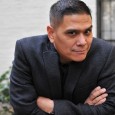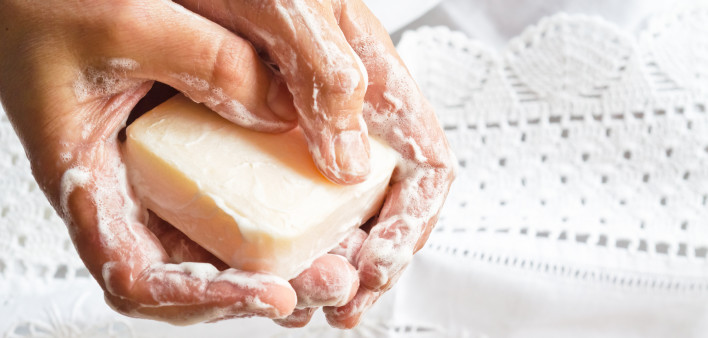Been having a difficult time trying to write, can’t seem to connect thoughts and ideas. Streaming services and frozen food have been key to my survival. It seems to take five times longer to do anything, if I even get to it: I am numb.
We have lost a lot of amazing leaders in the HIV community during this pandemic: Deloris Dockrey, Ed Shaw, Lorena Borjas, and more. The glamorous and talented drag performer Mona Foote was the first person I knew who died of Covid-19. Nashom was funny as hell, and extraordinarily sexy (in and out of drag). Many of us have lost so much in the pandemic: people, jobs, access to healthcare, social support, art and live performance, gyms, recreational activities and places to congregate.
I have days where I’m close to crying: I have days where I watch sad television shows to justify the crying.
It is not my intention to depress anyone. Rather, I want to explore the space of feeling like a failure. As Jack Halberstam wrote in The Queer Art of Failure, “it quietly loses, and in losing it imagines other goals for life, for love, for art, and for being.” We do not spend enough time in this country looking at some of the negative emotions we live with.
I have not written this blog in order to reduce the online buzzing. What do I have to say that would be useful at this point? Isn’t there enough random thoughts on the internet?
I went grocery shopping once, early in the shut down. It was traumatizing. People recoiling from others, masks and gloves reminding us of the germs we come in contact with everyday, the mere act of touch seen as a violence. I was part of a crowd watching a woman squeeze fruit for ripeness until a couple asked her loudly to stop. “Sorry,” she responded sheepishly, “I forgot.”
I went home and scrubbed my hands until they hurt. I felt dirty, in a way I had not felt since the last man who rejected me for my HIV-status. This pandemic is bringing up old traumas.
California – where I live now – has had a pretty aggressive lock down. I know I’m not the only one who has had a hard time staying mobile and active in this time. I’ve had to turn off the people on social media calling everyone else “lazy” for not taking advantage of this time to work out at home or learn a language or whip up amazing recipes. More and more, I wonder if social media is just a way of making others feel bad. I don’t need more of that in my life.
I have done telemedicine with my medical provider and my therapist. Telemedicine might work for someone else. I prefer the face-to-face encounter, responding to each other’s presence. There’s something a little discombobulating to me about responding to a two-dimensional screen when talking about my mental and physical health. I get that telemedicine is our option right now – that it does make these services accessible to some people and that younger people might prefer telemedicine. I can also see how telemedicine can reduce power distance in the clinical relationships, and therefore people can develop more equitable dynamics with their providers.
My job went virtual in mid-March. We had to adjust our classes to online environments for the remainder of the semester. Some faculty did not bother, believing that they could run the same course on Zoom as in-person, failing to understand the number of changes that would need to happen for an online platform and with students experiencing a myriad of challenges in the unexpected pandemic response. Media scholar Marshall McLuhan famously said, “the medium is the message.” In other words, the technology that delivers the messages affects how the message is delivered and understood. An online class is not the same as in-person instruction. In summer and fall, we are online again. Hopefully, more faculty will be more conscientious about creating courses for online platforms.
In the HIV community, I have seen many organizations try to hold virtual versions of in-person events with varying levels of success. I am not sure why these HIV organizations do not tap into those of us who regularly use online platforms for events or instruction. It takes some work, but it’s worth it. How many bad meetings have you been on where the people did not understand the technology they were using? Or people who think you’ll spend 4-6 hours on an online meeting, just because you were willing to do it in person?
Many of us are living on screens now: recreation, work, socializing, researching - even our sex lives in some cases- have all taken to online platforms. I get tired of watching all the time, the glare slowly deadening my attention span. I turn off my camera to stretch, get some tea, sometimes even to walk my dog.
What are new ways that we imagine goals for life, for love, for art, and for being?
I’ve found some refuge away from the mass storm of most of the US media:
- The writer Arundhati Roy has an extraordinary essay about the Covid-19 pandemic and its economic and social impacts.
- Kimberlé Crenshaw has an insightful interview up on Intersectionality and Covid-19.
- David Malebranche, MD has been providing science-based accessible advice on living with HIV and concerns about Covid-19. Since he’s a Black gay man living with HIV and an expert in medicine and public health, I believe him.
I hope that you’re safe, and managing. I promise not to judge you for what you haven’t done in this pandemic: just do me the same kindness.








Comments
Comments